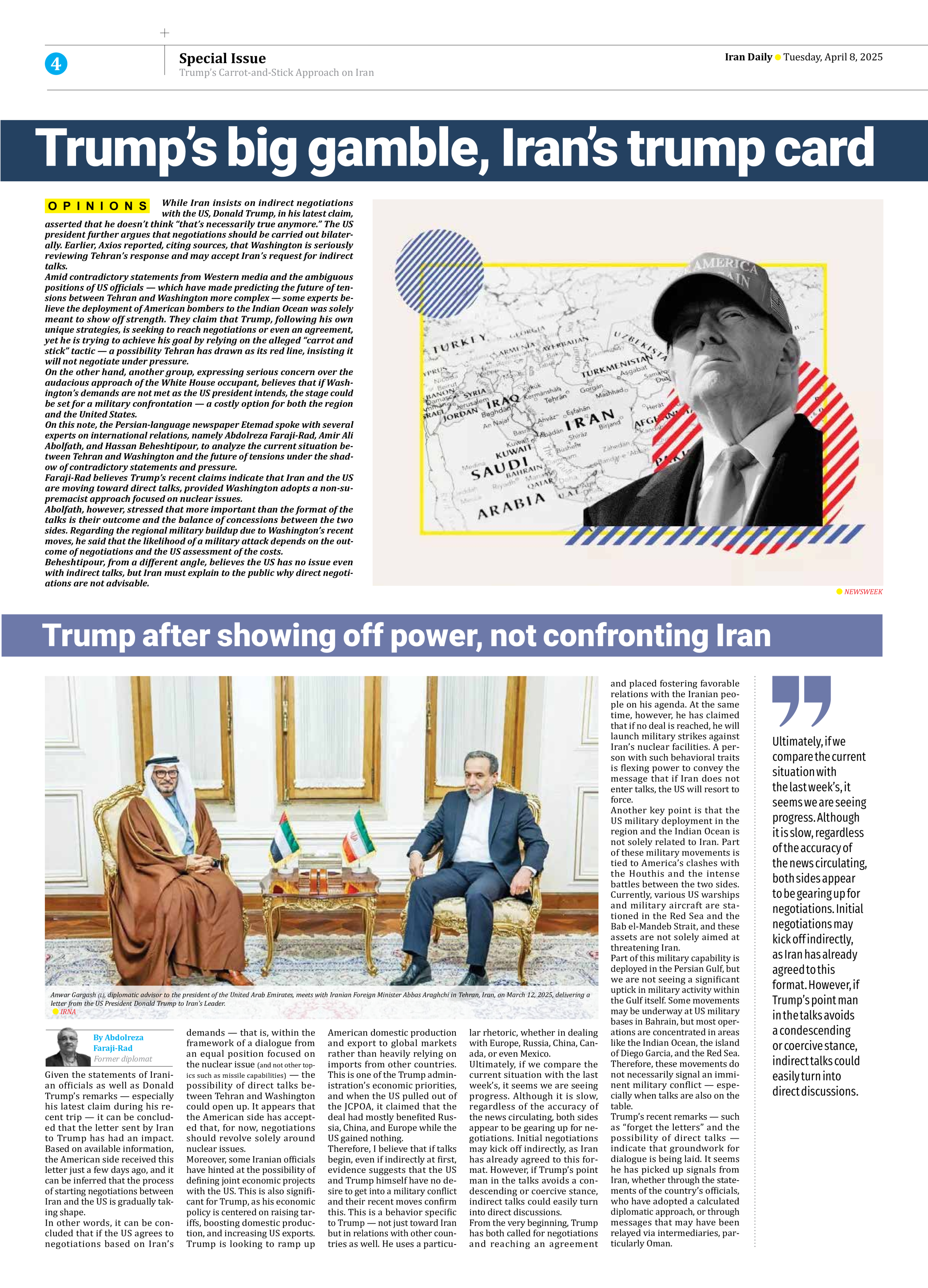
Trump’s big gamble, Iran’s trump card
While Iran insists on indirect negotiations with the US, Donald Trump, in his latest claim, asserted that he doesn’t think “that’s necessarily true anymore.” The US president further argues that negotiations should be carried out bilaterally. Earlier, Axios reported, citing sources, that Washington is seriously reviewing Tehran’s response and may accept Iran’s request for indirect talks.
Amid contradictory statements from Western media and the ambiguous positions of US officials — which have made predicting the future of tensions between Tehran and Washington more complex — some experts believe the deployment of American bombers to the Indian Ocean was solely meant to show off strength. They claim that Trump, following his own unique strategies, is seeking to reach negotiations or even an agreement, yet he is trying to achieve his goal by relying on the alleged “carrot and stick” tactic — a possibility Tehran has drawn as its red line, insisting it will not negotiate under pressure.
On the other hand, another group, expressing serious concern over the audacious approach of the White House occupant, believes that if Washington’s demands are not met as the US president intends, the stage could be set for a military confrontation — a costly option for both the region and the United States.
On this note, the Persian-language newspaper Etemad spoke with several experts on international relations, namely Abdolreza Faraji-Rad, Amir Ali Abolfath, and Hassan Beheshtipour, to analyze the current situation between Tehran and Washington and the future of tensions under the shadow of contradictory statements and pressure.
Faraji-Rad believes Trump’s recent claims indicate that Iran and the US are moving toward direct talks, provided Washington adopts a non-supremacist approach focused on nuclear issues.
Abolfath, however, stressed that more important than the format of the talks is their outcome and the balance of concessions between the two sides. Regarding the regional military buildup due to Washington’s recent moves, he said that the likelihood of a military attack depends on the outcome of negotiations and the US assessment of the costs.
Beheshtipour, from a different angle, believes the US has no issue even with indirect talks, but Iran must explain to the public why direct negotiations are not advisable.







